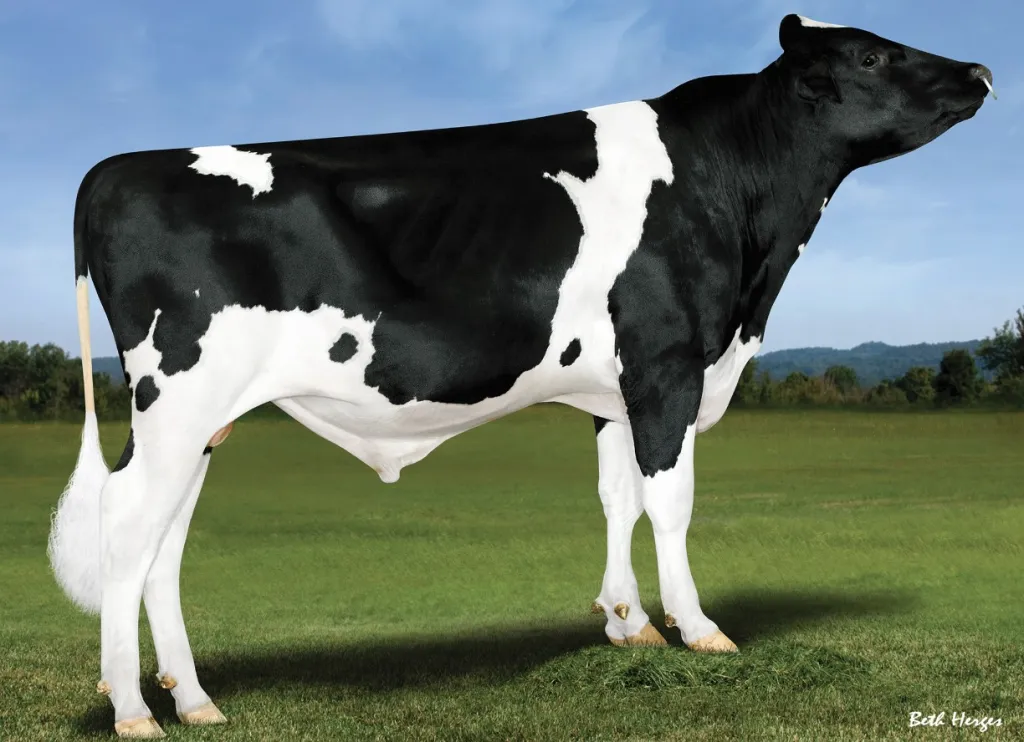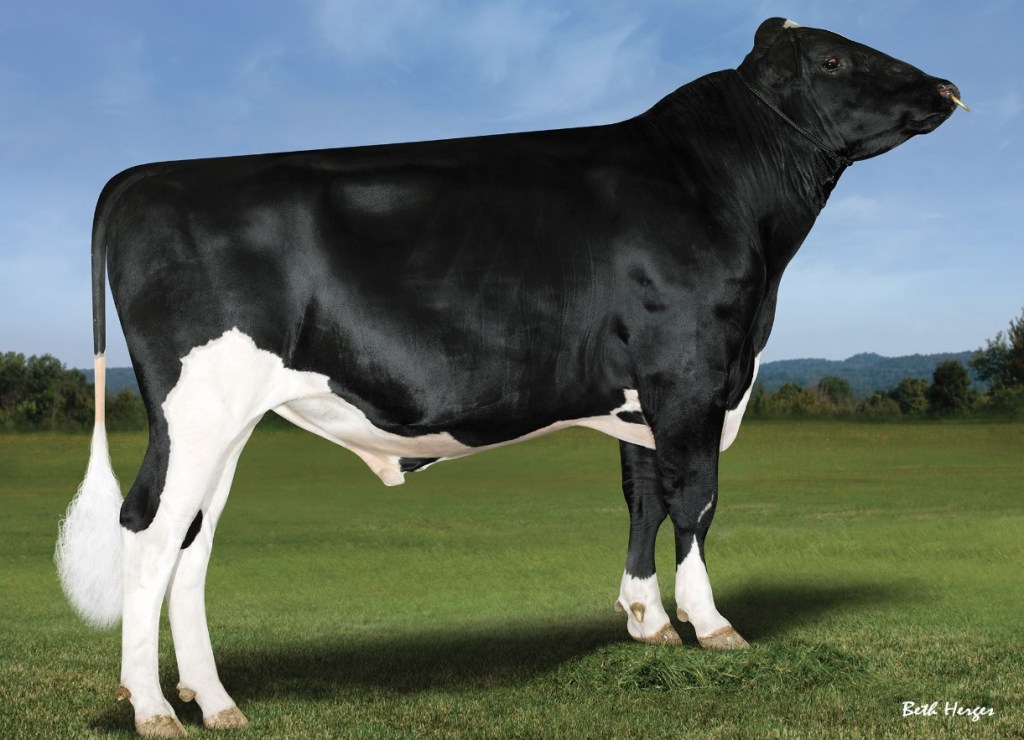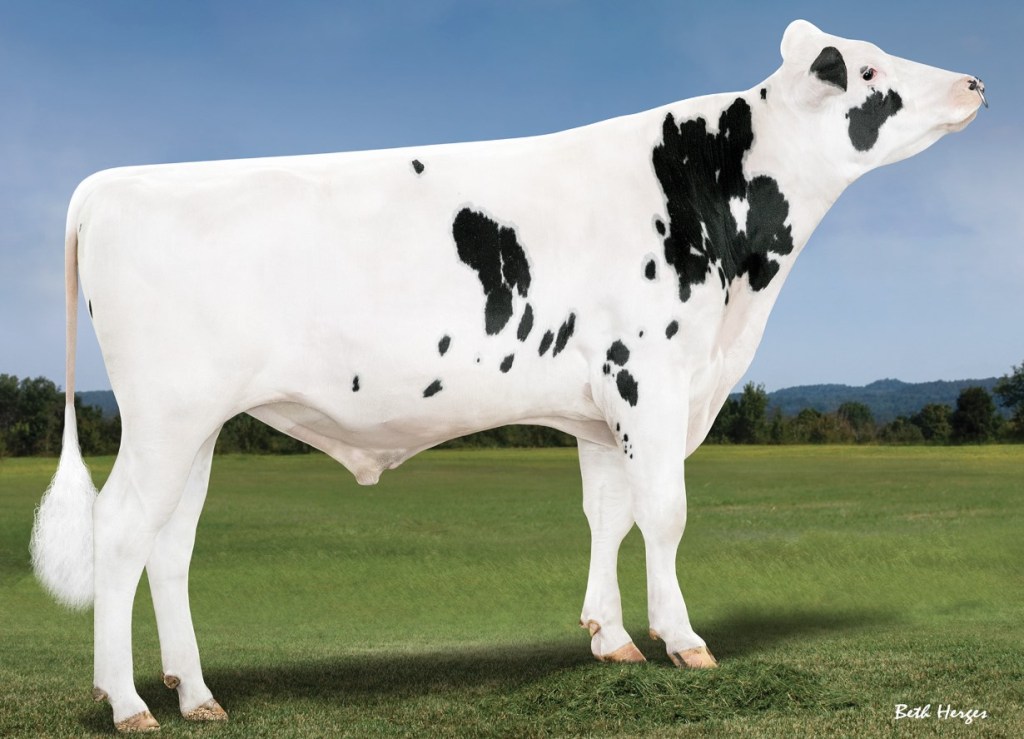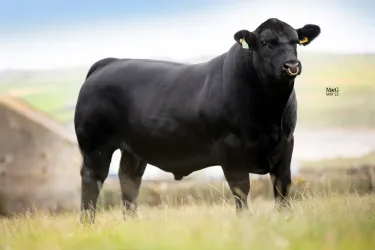The top-ranking polled males and females in the Holstein breed have made enormous leaps over the past decade.
Whereas in the past there was always a large genetic gap between the polled and their horned colleagues, we can now say that, at Genus ABS, some of our best ranking young sires carry the polled gene, whether you look from a US or UK index perspective, there are several top-ranking polled animals in that group.
The main contributors to the strength of our polled line-up are; MONUMENT-P, EDGE-P and MENDEL-P.
All three of these heterozygous polled sires were able to compete with the horned sires during their early days, or in the case of MENDEL-P, able to beat the horned sires.

These bulls were used extensively as mating sires. They laid a very solid foundation for the polled gene within our male and female population.
These bulls all have 2-3 generations of horned sires in their pedigrees, which means they are different from a sire stack perspective than most polled animals.

With this foundation and the use of horned sires, we want to keep developing our polled population and advance the genetic levels of polled cattle.
Today, with the use of our polled lines, we are already able to offer a strong selection of homozygous polled sires and, with the use of horned sires on our polled lines, we are able to add diversity, so we can also offer a great variety of homozygous polled bulls in the future.

What are polled genetics and how are they determined?
A polled cow is one which was naturally born without horns as a result of its DNA.
The polled gene is a dominant trait in a cow’s DNA, whereas the horned gene is recessive. This means that only one parent, either the bull or mother, needs to carry that polled gene to have hornless/polled offspring.
There are two different types of polled sires, heterozygous and homozygous. Heterozygous animals have one copy of the polled gene, and homozygous have two copies of the polled gene. Sometimes these are referred to as (P) and (PP).

50% of a heterozygous (p) bull’s progeny will be polled, where as 100% of a homozygous (pp) bull’s progeny will be polled.
When searching through sire directories, you might see that some of the bull names contain a (P) or (PP), this is to indicate whether or not that particular sire has the heterozygous or homozygous polled gene.
What are the benefits to having a polled cow?
As you know, dehorning an animal usually costs about £15, which would be £3,000 for a herd with 200 heifer replacements to dehorn.
By incorporating polled genetics into your herd’s genetic strategy, you can save on this unnecessary cost.
Farmers typically dehorn calves when they are between two and four weeks of age. This is just before they get weaned and are fed hard corn.
This is a particularly stressful time for a young calf, and so taking away the extra stress of dehorning the animal will certainly benefit their well-being.
In reducing additional stressors in the calf’s early stages, it can prevent any negative impact on their future productive performance.
How is polled inherited in the dairy population?
With different types of sires, different types of matings are possible. When dairy farmers are selecting for particular traits as part of their genetic programme, they can choose to produce polled cows in one of two ways:
- Using a heterozygous (P) polled sire with a horned cow. It will lead to a 50-50 split between polled and horned calves in the next generation.
- Using a homozygous (PP) polled sire with a horned cow. It will result in polled calves in every instance.
Are polled genetics as good as horned genetics?
At Genus ABS, we never stop pioneering and innovating our genetics. That is why the polled genetics we offer are of equal calibre to horned genetics.
We now have a wide selection of polled sires that will be perfect for your herd’s genetic profile. You can find out more about the specific traits and data of our polled animals over on our Bull Search.
If you want to incorporate polled traits into your herd’s genetic portfolio, get in touch with your local representative today or visit our website for more information.
North Wales / Cheshire / Staffordshire: Aaron Bousfield – tel:07967 783662 / [email protected]
Derbyshire / Shropshire / Leicestershire / Herefordshire / Lincolnshire: Richard Bostock – tel:07970503329 / [email protected]
Yorkshire / Lancashire: Colin Lucas – tel:07971 118993 / mailto:[email protected]
Gloucestershire / Oxfordshire / Buckinghamshire / Wiltshire: Andy King – tel:07971 119044 / [email protected]
South Wales: Nick Thomas – tel:07971 118 620 / [email protected]
Devon, Cornwall & Somerset: Simon Hancock – tel:07971118911 / [email protected]
Scotland: David Guthrie – tel:07976 334 694 / [email protected]
For general enquiries, please contact [email protected] or call us on 01270 616681





